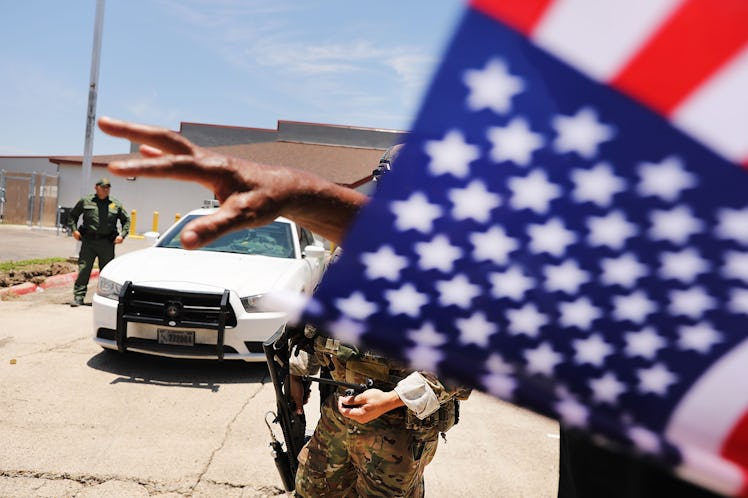
This Is The Law Standing In The Way Of Trump's "Zero Tolerance" Policy
President Donald Trump's new "zero tolerance" immigration policy along the country's southern border has been widely criticized for separating families from their children, even though the administration repeatedly claimed that they had no policy requiring families to be split. So why were families getting split up under the zero tolerance policy? Well, it's all thanks to a court case that dates back to the 1990s which currently stands in the way of Trump being able to fully enforce his new policy. But now, the administration is trying change this already established law to accommodate the "zero tolerance policy." So what is the Flores Settlement, and how do its details get in the way of Trump's "zero tolerance" law?
The Flores v. Reno case, commonly referred to as the “Flores Settlement,” is a 1997 court ruling that dictates how U.S. immigration deals with minors that have illegally crossed the border. The decision, dubbed the "Flores Settlement" established that the U.S. government would be required to detain unaccompanied minors in "least restrictive" settings, and release them to an appropriate adult "without unnecessary delay" — aka as quickly as possible. In 2015, the courts clarified the Flores Settlement, ruling that children could not be detained even with families and limiting the time that minors could be held in custody to 20 days.
The law was named for Jenny Lisette Flores, a 15-year-old girl from El Salvador who fled her country due to a major civil war in 1985 with the intention of reuniting with her mother, who was already living in California. After entering the United States, she was detained alone by authorities for two months. The conditions of the detention site were incredibly inappropriate for a child, according to Vox. Flores was held in an old motel that was fenced with barbed wire. There was no school present on site, and she was housed with adults of both sexes where she was subject to regular strip searches, and wasn't offered contact with her parents.
The Flores Settlement has gotten attention once again after Trump referenced the court ruling on June 20, after he signed an executive order aimed to keep families that have illegally crossed the border together.
In theory, this move from Trump is great. But the issue with the order is that Trump wants to detain the families together indefinitely — yet it's already been clarified that the Flores Settlement deems this to be illegal. This is why the Department of Justice (DOJ) has asked the courts to modify the Flores Settlement. On June 21 the DOJ filed a motion in federal court to change the law to allow for families to be detained together indefinitely. "We ask for immediate interim relief from this Court that would permit family detention during immigration proceedings," the request states.
The executive order was orchestrated by Trump in response to reports of nearly 2,000 children being separated from their families as a result of his "zero tolerance policy." The policy, announced by Attorney General Jeff Sessions in early April, requires that all immigrants crossing the border illegally be prosecuted. But the Flores Settlement causes a wrinkle — because it doesn't allow children to be detained, young migrants have been separated from their adult guardians or companions and put in separate detention centers while the adults were prosecuted. The policy of separating families saw enormous public backlash, particularly after photos and audio of crying children who had been separated from their parents went viral. The American Academy of Pediatrics has condemned the policy of separating families, saying that it can cause lifelong trauma for children.
The DOJ claims that modifying the Flores Settlement is necessary due to "the ongoing and worsening influx of families unlawfully entering the United States at the southwest border." Trump's executive order won't be valid if the courts don't agree to the DOJ's request.
Until the courts announce their final decision on this matter, the ultimate fate of immigrant families trying to enter the United States is up in the air.